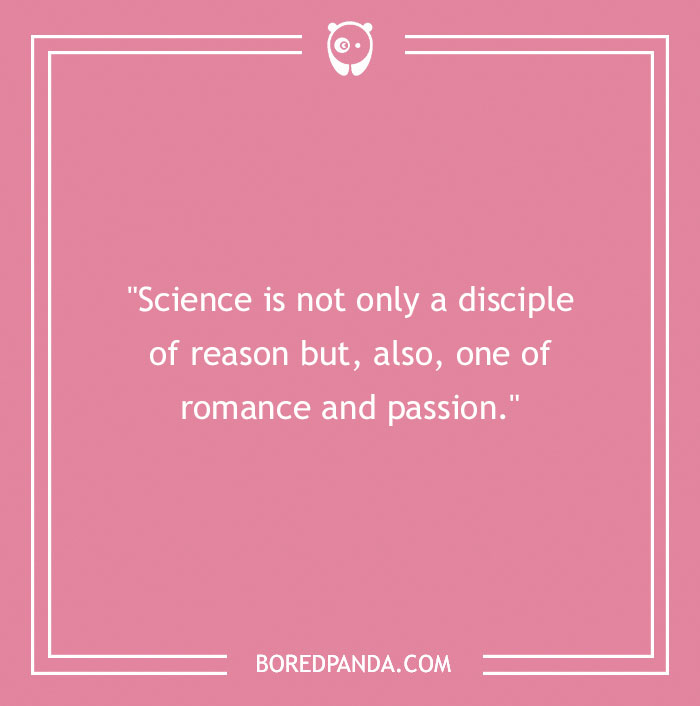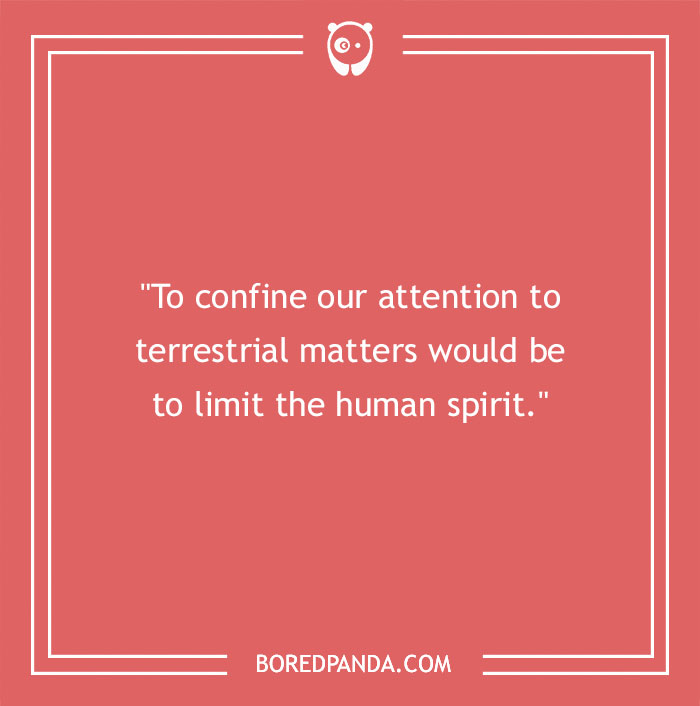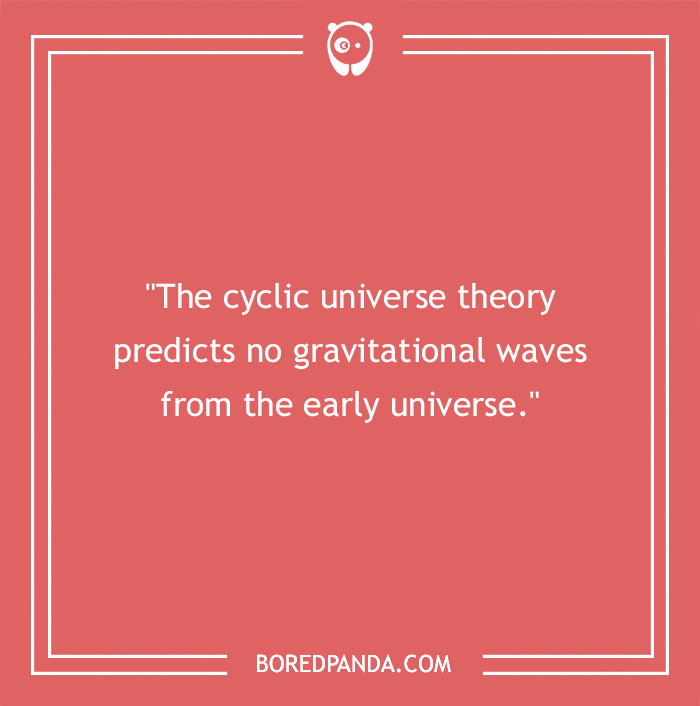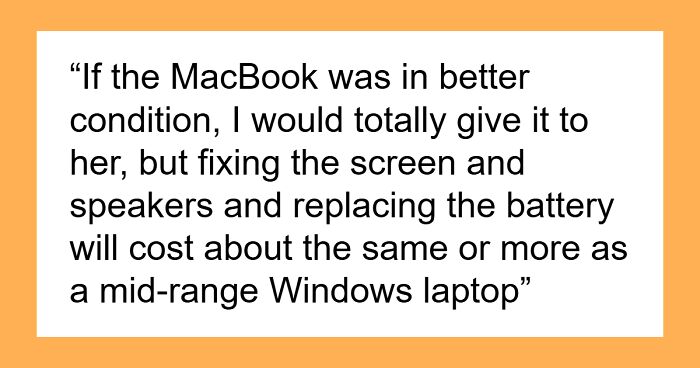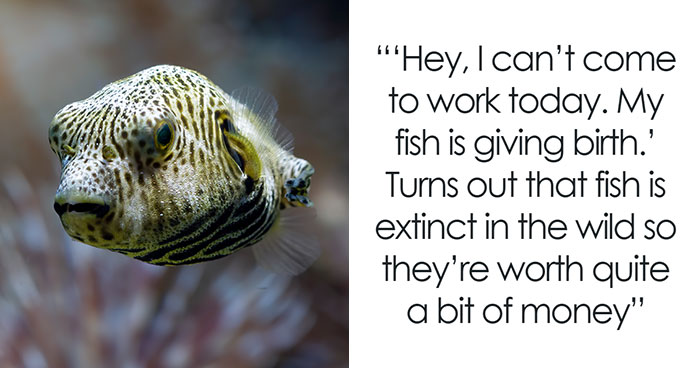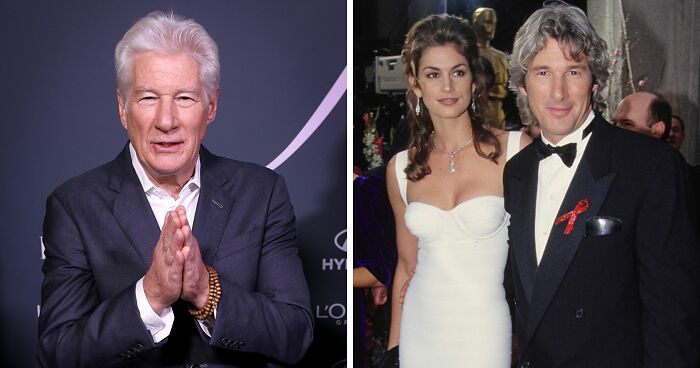Stephen Hawking was a super-genius theoretical physicist and cosmologist. But what’s even cooler was that he also had an incredible way with words and a great sense of humor. These Stephen Hawking quotes will inspire and motivate you to learn more about humanity, God, and science.
Hawking’s life story was nothing short of extraordinary. Despite being diagnosed with a rare motor neuron disease when he was just 21, he went on to defy all expectations.
The British scientist brought science to a mass audience. His book, A Brief History of Time, broke down complex scientific concepts in an accessible and engaging manner. Hawking had this incredible gift of explaining mind-boggling ideas about the universe in a way that anyone could understand.
While Hawking has passed, his work, and famous quotes, continue to inspire. One of the famous Stephen Hawking quotes, “Intelligence is the ability to adapt to change,” is like a reflection on his life and how he never gave up despite the odds.
And he wasn’t afraid to drop some truth bombs either. “The greatest enemy of knowledge is not ignorance, it is the illusion of knowledge,” he once said. Think about that for a second. Sometimes we think we know it all, but Hawking reminds us to stay humble and keep seeking knowledge.
His legacy isn’t just about scientific breakthroughs. It’s about the human spirit and resilience. These inspiring quotes by Stephen Hawking will remind you to always stay curious.
Read on below to find out more about the brilliant scientist.
This post may include affiliate links.
 "My ideal role would be a baddie in a James Bond film. I think the wheelchair and the computer voice would fit the part."
"My ideal role would be a baddie in a James Bond film. I think the wheelchair and the computer voice would fit the part."
What is Stephen Hawking famous for?
Stephen Hawking is famous for his groundbreaking work in theoretical physics and cosmology. He made significant discoveries and contributions to the understanding of the universe. These are some of his most notable achievements:
- Hawking Radiation Theory. One of his most groundbreaking discoveries was the concept of Hawking radiation. He proposed that black holes are not entirely black but emit radiation. This theoretical prediction suggests that black holes slowly lose mass and eventually evaporate over time.
- Singularity Theorems. Hawking made several contributions to singularity theorems. These theorems explore the existence of singularities, points of infinite density.
- Big Bang Theory. His work on the origin of the universe contributed to the development and refinement of the Big Bang theory.
Hawking’s work has inspired countless scientists to understand the universe. His brilliance continues to influence the world of astrophysics even today.
"God may exist, but science can explain the universe without the need for a creator."
People should know it's never God vs science, many scientists, doctors and astronomers are religious that doesn't mean we don't accept science. Religion is just an identity or a set of rules and values that define how to spend ones life. The Kardashev scale is a theory put forward by scientists that does point to a potential higher intelligence that exists unbound by the rules of our universe. The universe is sooo big that statistically anything is possible.
 "Quiet people have the loudest minds."
"Quiet people have the loudest minds."
Did Hawking win a Nobel Prize?
No, Professor Hawking never won a Nobel Prize. Despite his groundbreaking contributions to science, he was not awarded a Nobel. The primary reason was that the Nobel Prize in Physics is typically awarded for experimental discoveries or theoretical work that can be confirmed through experimental evidence. Hawking’s discoveries were theoretical and had not been experimentally proven.
He did receive several other awards, though. He won the Presidential Medal of Freedom in 2009 – the highest civilian award in the United States. He also won the Albert Einstein Award, Copley Medal, and the Wolf Prize in Physics.
"I believe alien life is quite common in the universe, although intelligent life is less so. Some say it has yet to appear on planet Earth."
How old was Stephen Hawking when he became paralyzed?
Professor Hawking was diagnosed with an early-onset form of motor neuron disease known as amyotrophic lateral sclerosis (ALS) in 1963. He was 21 at that time, studying at the University of Cambridge.
The prognosis didn’t stop him. He continued to pursue his academic career and did groundbreaking research, even as his health got worse. Eventually, he was completely paralyzed. He had to use an electric wheelchair to move around and a computerized speech synthesizer to communicate.
It’s incredible how he defied his physical limitations and kept his brilliant mind actively engaged in exploring the mysteries of the universe. And even though he faced tremendous challenges, he never lost his sense of humor and his determination to enjoy life to the fullest.
"The greatest enemy of knowledge is not ignorance, it is the illusion of knowledge."
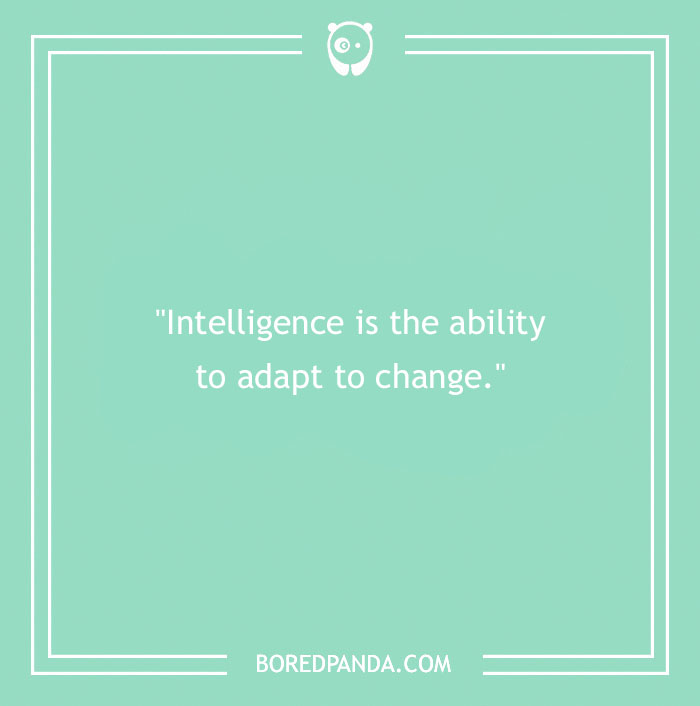 "Intelligence is the ability to adapt to change."
"Intelligence is the ability to adapt to change."
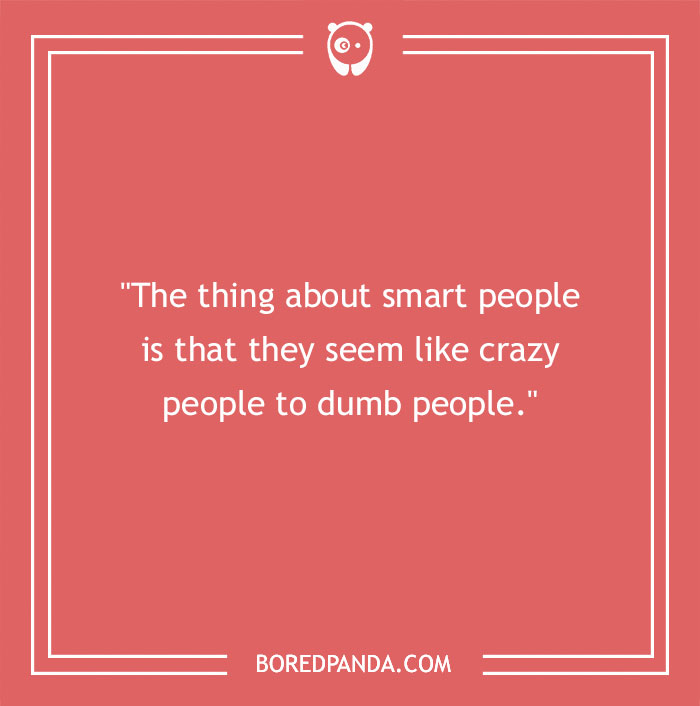 "The thing about smart people is that they seem like crazy people to dumb people."
"The thing about smart people is that they seem like crazy people to dumb people."
"I have noticed even people who claim everything is predestined, and that we can do nothing to change it, look before they cross the road."
"Success in creating AI would be the biggest event in human history. Unfortunately, it might also be the last, unless we learn how to avoid the risks."
"Although I cannot move and I have to speak through a computer, in my mind I am free."
The mind is the most freeing place to be. Complete privacy and no rules or laws to dictate how to think.
"My advice to other disabled people would be, concentrate on things your disability doesn't prevent you doing well and don't regret the things it interferes with. Don't be disabled in spirit, as well as physically."
"If time travel is possible, where are the tourists from the future?"
"One, remember to look up at the stars and not down at your feet. Two, never give up work. Work gives you meaning and purpose and life is empty without it. Three, if you are lucky enough to find love, remember it is there, and don't throw it away."
"However bad life may seem, there is always something you can do, and succeed at. While there's life, there is hope."
"People won’t have time for you if you are always angry or complaining."
It's good to be varied. We are only human, after all. Just don't be fake. No one likes fake nice.
"Keeping an active mind has been vital to my survival, as has been maintaining a sense of humor."
My mind is always wanting to learn. I agree about laughing. I love to laugh and I am quite funny at times in just entertain myself.
 "I was not a good student. I did not spend much time at college; I was too busy enjoying myself."
"I was not a good student. I did not spend much time at college; I was too busy enjoying myself."
"Life would be tragic if it weren’t funny."
 "One of the basic rules of the universe is that nothing is perfect. Perfection simply doesn’t exist… Without imperfection, neither you nor I would exist."
"One of the basic rules of the universe is that nothing is perfect. Perfection simply doesn’t exist… Without imperfection, neither you nor I would exist."
"My expectations were reduced to zero when I was 21. Everything since then has been a bonus."
"I am just a child who has never grown up. I still keep asking these ‘how’ and ‘why’ questions. Occasionally, I find an answer."
"Look up at the stars and not down at your feet. Try to make sense of what you see, and wonder about what makes the universe exist. Be curious."
"If we want to travel into the future, we just need to go fast. Really fast. And I think the only way we're ever likely to do that is by going into space."
 "When one’s expectations are reduced to zero, one really appreciates everything one does have."
"When one’s expectations are reduced to zero, one really appreciates everything one does have."
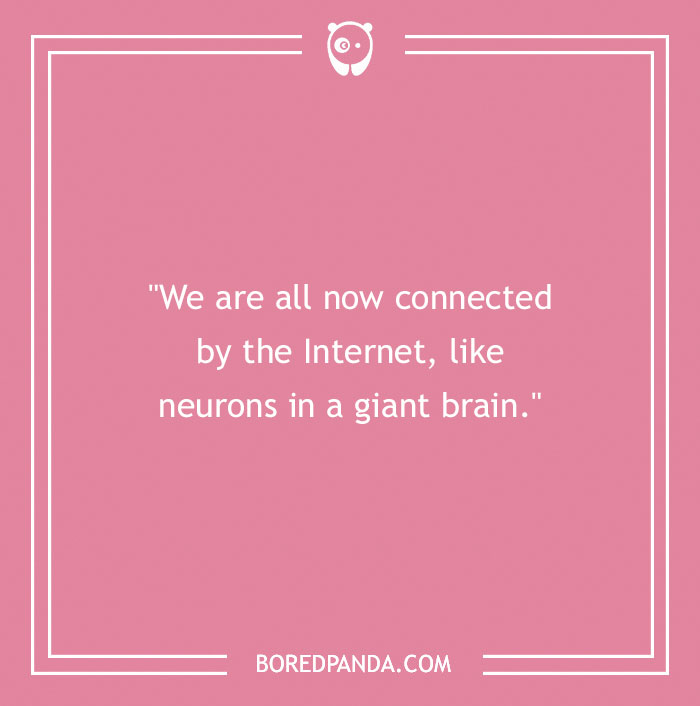 "We are all now connected by the Internet, like neurons in a giant brain."
"We are all now connected by the Internet, like neurons in a giant brain."
"We are just an advanced breed of monkeys on a minor planet of a very average star. But we can understand the Universe. That makes us something very special."
Well - we *think* we understand *parts* of it. But we usually don't understand each other, so ...
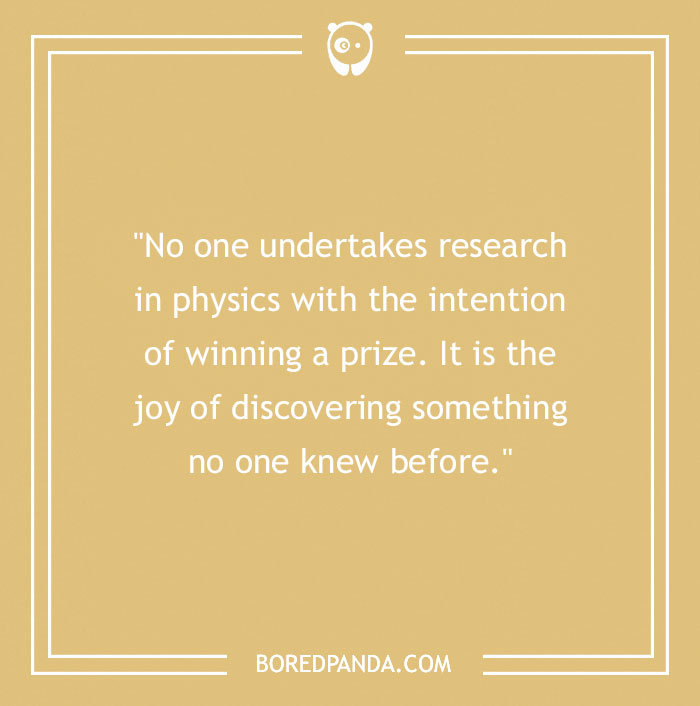 "No one undertakes research in physics with the intention of winning a prize. It is the joy of discovering something no one knew before."
"No one undertakes research in physics with the intention of winning a prize. It is the joy of discovering something no one knew before."
"I think computer viruses should count as life. I think it says something about human nature that the only form of life we have created so far is purely destructive. We've created life in our own image."
"I regard the brain as a computer that will stop working when its components fail. There is no heaven or afterlife for broken-down computers; that is a fairy story for people afraid of the dark."
And the saddest part is that so many people are so afraid of death that they waste their entire lives, fearing it. Here and now, you are alive!
 "I don't want to write an autobiography because I would become public property with no privacy left."
"I don't want to write an autobiography because I would become public property with no privacy left."
"The downside of my celebrity is that I cannot go anywhere in the world without being recognized. It is not enough for me to wear dark sunglasses and a wig. The wheelchair gives me away."
"Because there is a law such as gravity, the universe can and will create itself from nothing."
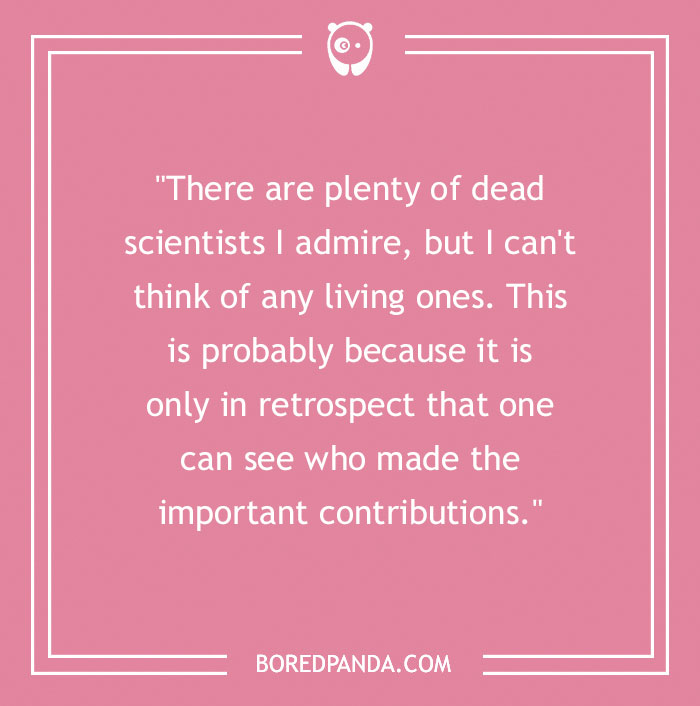 "There are plenty of dead scientists I admire, but I can't think of any living ones. This is probably because it is only in retrospect that one can see who made the important contributions."
"There are plenty of dead scientists I admire, but I can't think of any living ones. This is probably because it is only in retrospect that one can see who made the important contributions."
Which is why anyone who writes an autobiography is an ego maniac? Mark Twain dictated his virtually on his deathbed and made sure that it couldn’t be published for 100 years. That way he could be honest and speak truth without fear repercussion to himself or his family.
"Primitive life is very common and intelligent life is fairly rare. Some would say it has yet to occur on Earth."
"A few years ago, the city council of Monza, Italy, barred pet owners from keeping goldfish in curved bowls... saying that it is cruel to keep a fish in a bowl with curved sides because, gazing out, the fish would have a distorted view of reality. But how do we know we have the true, undistorted picture of reality?"
"My goal is simple. It is a complete understanding of the universe, why it is as it is, and why it exists at all."
"It surprises me how disinterested we are today about things like physics, space, the universe, and philosophy of our existence, our purpose, our final destination."
"I don’t think the human race will survive the next thousand years unless we spread into space."
"I would like nuclear fusion to become a practical power source. It would provide an inexhaustible supply of energy, without pollution or global warming."
Catnip for terrorists, though. So many ways to destroy a fusion reactor. Such destruction if they succeed.
"When we understand string theory, we will know how the universe began. It won't have much effect on how we live, but it is important to understand where we come from and what we can expect to find as we explore."
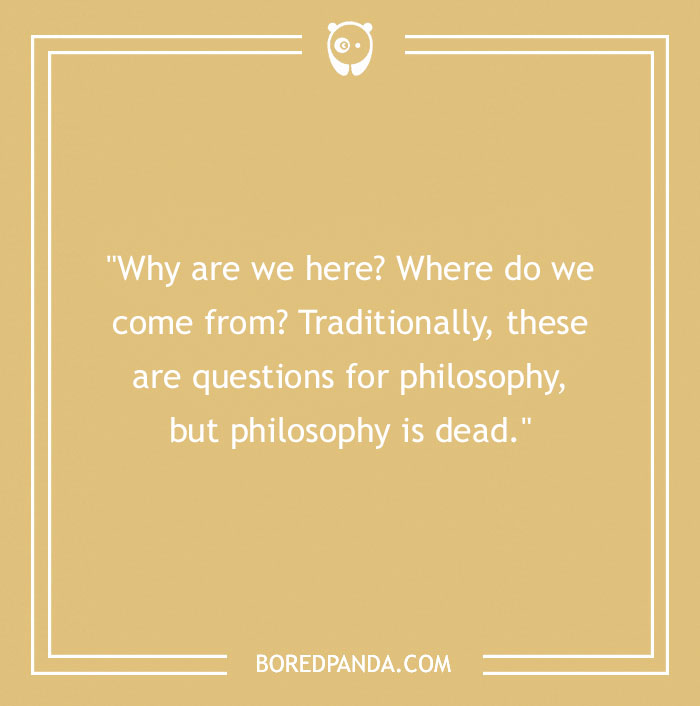 "Why are we here? Where do we come from? Traditionally, these are questions for philosophy, but philosophy is dead."
"Why are we here? Where do we come from? Traditionally, these are questions for philosophy, but philosophy is dead."
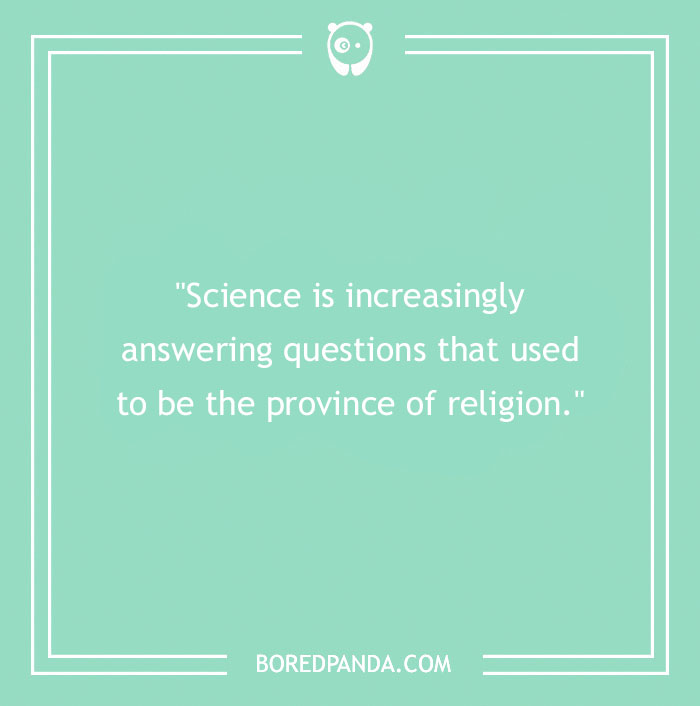 "Science is increasingly answering questions that used to be the province of religion."
"Science is increasingly answering questions that used to be the province of religion."
I'd discuss this; Science does the "How?" but religion tends to stick to the "Why?" Answer - God did it. CR, LF.
"Einstein was wrong when he said, 'God does not play dice'. Consideration of black holes suggests, not only that God does play dice, but that he sometimes confuses us by throwing them where they can't be seen."
"I wouldn't be here today if it were not for the NHS. I have received a large amount of high-quality treatment without which I would not have survived."
"I don't have much positive to say about motor neuron disease, but it taught me not to pity myself because others were worse off, and to get on with what I still could do. I'm happier now than before I developed the condition."
 "What I'd really like to control is not machines, but people."
"What I'd really like to control is not machines, but people."
"Theoretical physics is one of the few fields in which being disabled is no handicap - it is all in the mind."
"We must develop as quickly as possible technologies that make possible a direct connection between brain and computer, so that artificial brains contribute to human intelligence rather than opposing it."
That sounds like what every corporation would love to do with their employees.
"I think it quite likely that we are the only civilization within several hundred light years; otherwise we would have heard radio waves."
"As a child, I wanted to know how things worked and to control them. With a friend, I built a number of complicated models that I could control."
"I hope I have helped to raise the profile of science and to show that physics is not a mystery but can be understood by ordinary people."
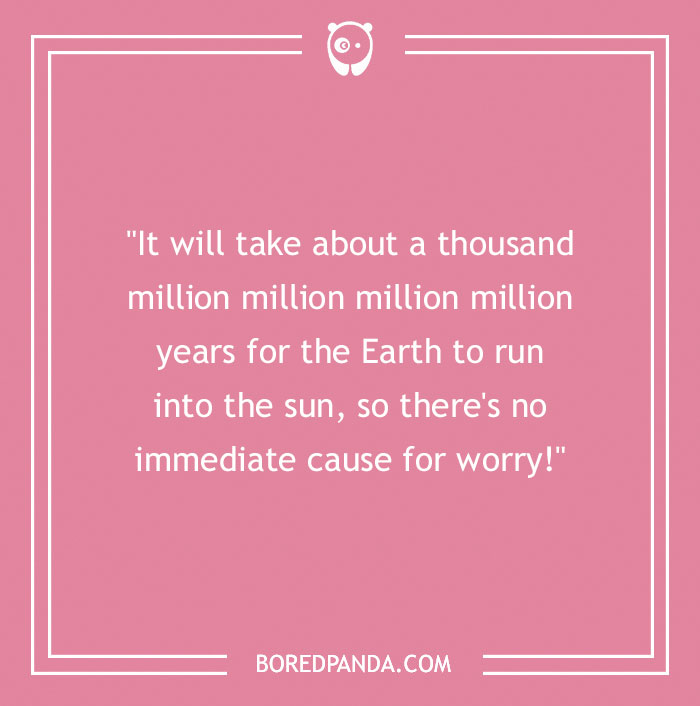 "It will take about a thousand million million million million years for the Earth to run into the sun, so there's no immediate cause for worry!"
"It will take about a thousand million million million million years for the Earth to run into the sun, so there's no immediate cause for worry!"
"I think we have a good chance of surviving long enough to colonize the solar system."
"Science predicts that many different kinds of universe will be spontaneously created out of nothing. It is a matter of chance which we are in."
"I want to know why the universe exists, why there is something greater than nothing."
"I used to think information was destroyed in black hole. This was my biggest blunder, or at least my biggest blunder in science."
"Before 1915, space and time were thought of as a fixed arena in which events took place, but which was not affected by what happened in it. Space and time are now dynamic quantities... space and time not only affect but are also affected by everything that happens in the universe."
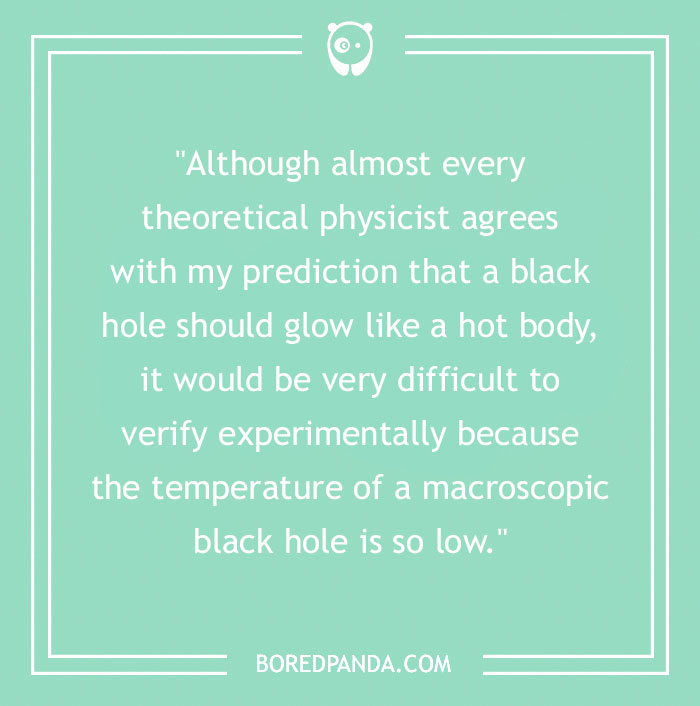 "Although almost every theoretical physicist agrees with my prediction that a black hole should glow like a hot body, it would be very difficult to verify experimentally because the temperature of a macroscopic black hole is so low."
"Although almost every theoretical physicist agrees with my prediction that a black hole should glow like a hot body, it would be very difficult to verify experimentally because the temperature of a macroscopic black hole is so low."
"The media need superheroes in science just as in every sphere of life, but there is really a continuous range of abilities with no clear dividing line."
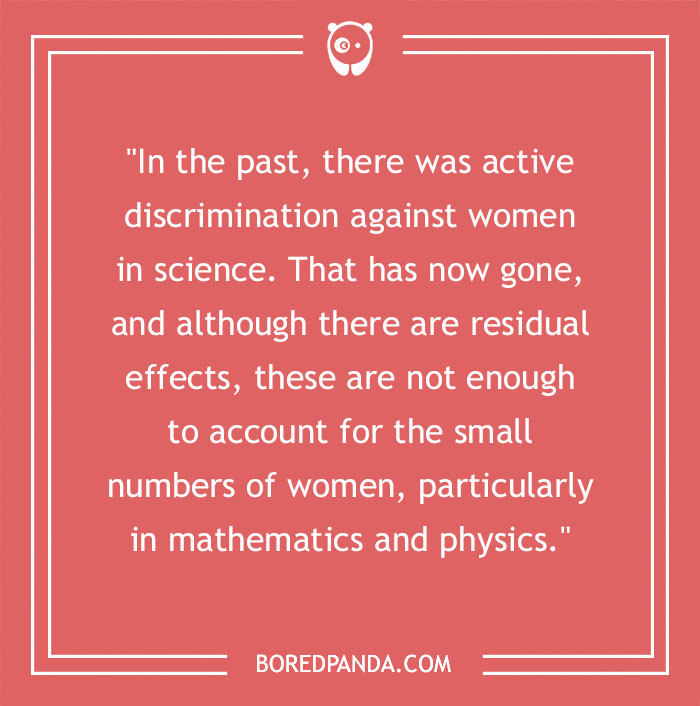 "In the past, there was active discrimination against women in science. That has now gone, and although there are residual effects, these are not enough to account for the small numbers of women, particularly in mathematics and physics."
"In the past, there was active discrimination against women in science. That has now gone, and although there are residual effects, these are not enough to account for the small numbers of women, particularly in mathematics and physics."
"Throughout history, people have studied pure science from a desire to understand the universe rather than practical applications for commercial gain. But their discoveries later turned out to have great practical benefits."
"We think that life develops spontaneously on Earth, so it must be possible for life to develop on suitable planets elsewhere in the universe. But we don't know the probability that a planet develops life."
"I first had the idea of writing a popular book about the universe in 1982. My intention was partly to earn money to pay my daughter's school fees."
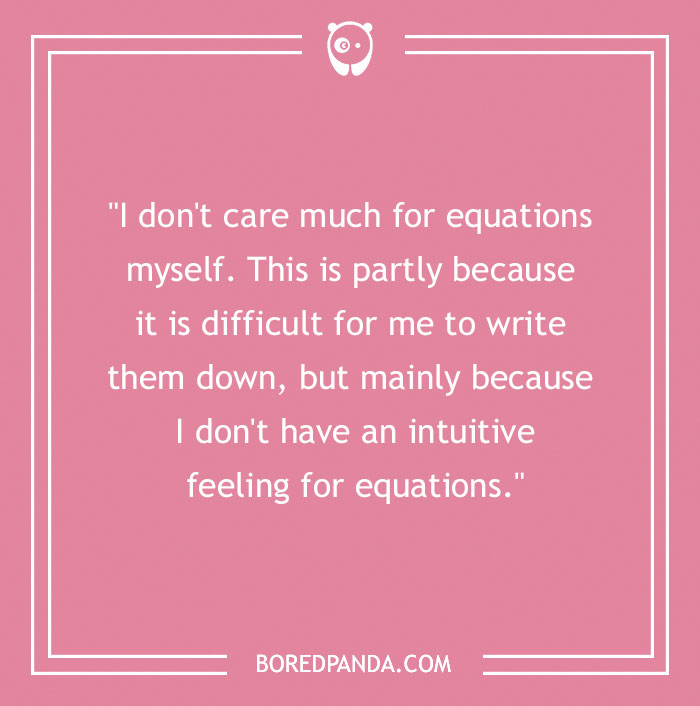 "I don't care much for equations myself. This is partly because it is difficult for me to write them down, but mainly because I don't have an intuitive feeling for equations."
"I don't care much for equations myself. This is partly because it is difficult for me to write them down, but mainly because I don't have an intuitive feeling for equations."
Equations are handy for estimating just how the real world will kick against us, but they always ignore other variables which may turn out to be rather important, too.
"I have found far greater enthusiasm for science in America than here in Britain. There is more enthusiasm for everything in America."
The 'can do' spirit is powerful, but there are some things that simply shouldn't be done. We have one lifetime each to educate ourselves about the difference.
"The scientific account is complete. Theology is unnecessary."
Science is never complete, at least not while we are free to look at something and say "That's interesting, I didn't expect that ..."
"Science is beautiful when it makes simple explanations of phenomena or connections between different observations. Examples include the double helix in biology and the fundamental equations of physics."
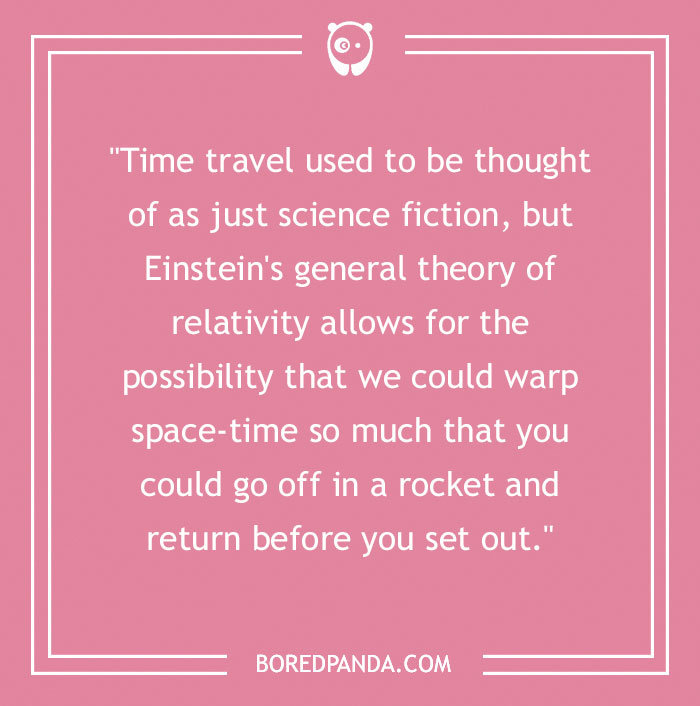 "Time travel used to be thought of as just science fiction, but Einstein's general theory of relativity allows for the possibility that we could warp space-time so much that you could go off in a rocket and return before you set out."
"Time travel used to be thought of as just science fiction, but Einstein's general theory of relativity allows for the possibility that we could warp space-time so much that you could go off in a rocket and return before you set out."
"Before I lost my voice, it was slurred, so only those close to me could understand, but with the computer voice, I found I could give popular lectures. I enjoy communicating science. It is important that the public understands basic science, if they are not to leave vital decisions to others."
"If the rate of expansion one second after the Big Bang had been smaller by even one part in a hundred thousand million million, it would have recollapsed before it reached its present size. On the other hand, if it had been greater by a part in a million, the universe would have expanded too rapidly for stars and planets to form."
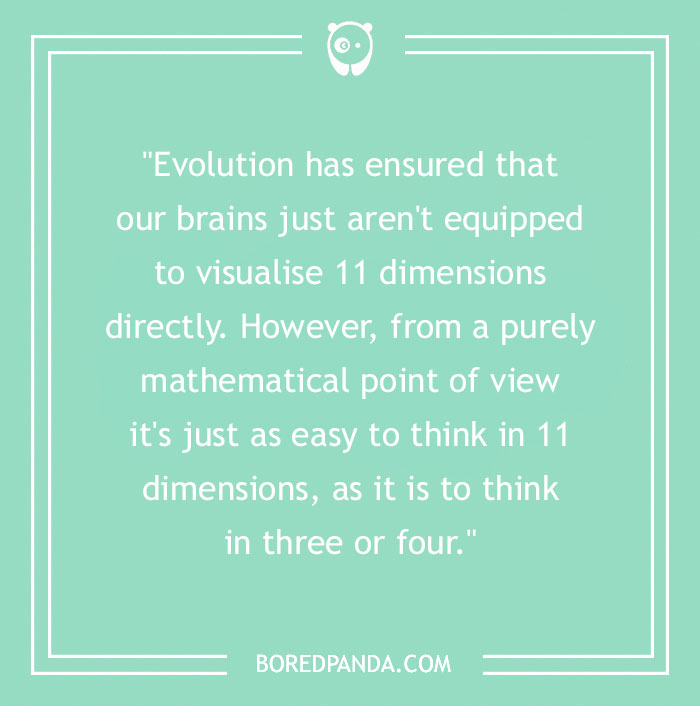 "Evolution has ensured that our brains just aren't equipped to visualise 11 dimensions directly. However, from a purely mathematical point of view it's just as easy to think in 11 dimensions, as it is to think in three or four."
"Evolution has ensured that our brains just aren't equipped to visualise 11 dimensions directly. However, from a purely mathematical point of view it's just as easy to think in 11 dimensions, as it is to think in three or four."
"There is no physical law precluding particles from being organised in ways that perform even more advanced computations than the arrangements of particles in human brains."
"For years, my early work with Roger Penrose seemed to be a disaster for science. It showed that the universe must have begun with a singularity, if Einstein's general theory of relativity is correct. That appeared to indicate that science could not predict how the universe would begin."
Twice he sooke directly about the purpose or the reason why things exist at all. I commented on them and something funny happened to the site, it shut down. Then when I restarted it, neither of the two quotes were listed. I repeatedly checked to find them. They are gone. Someone explain that.
Twice he sooke directly about the purpose or the reason why things exist at all. I commented on them and something funny happened to the site, it shut down. Then when I restarted it, neither of the two quotes were listed. I repeatedly checked to find them. They are gone. Someone explain that.

 Dark Mode
Dark Mode 

 No fees, cancel anytime
No fees, cancel anytime 










